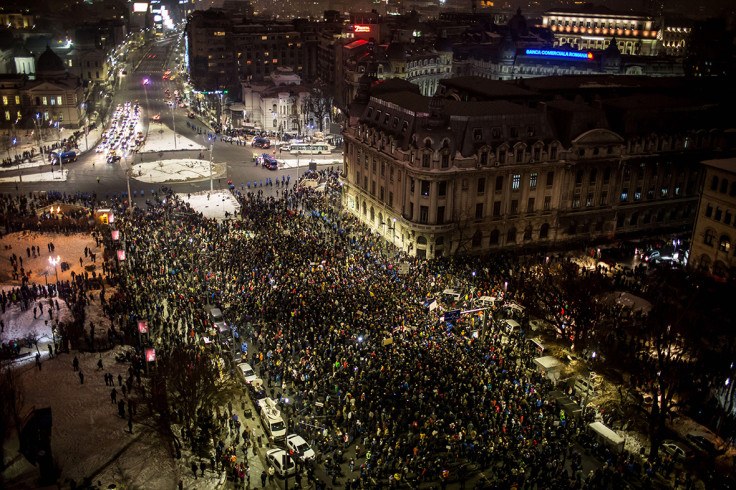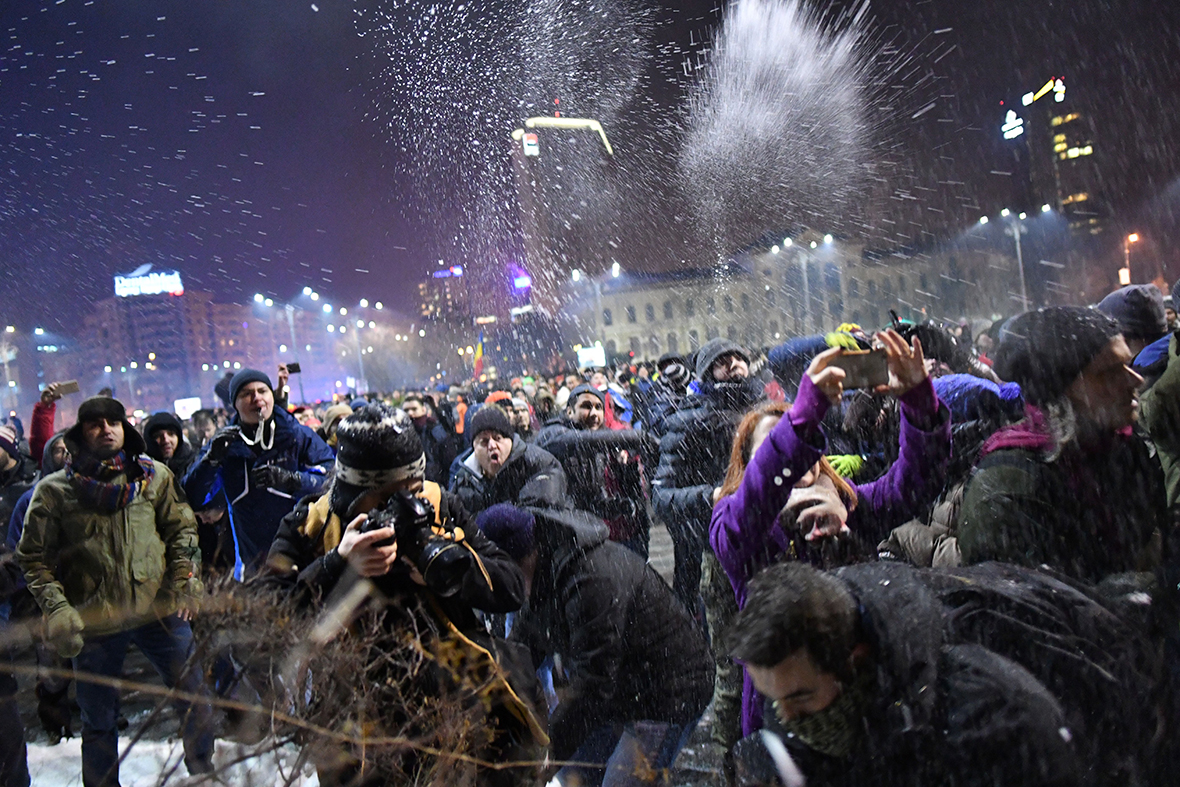Romanians protest against decree that could set dozens of jailed corrupt politicians free
Demonstrators held placards reading '89' referring the 1989 Romanian Revolution that toppled late dictator Nicolae Ceausescu.
More than a quarter of a million Romanians took part in one of the largest protests seen against the Romanian government in Bucharest and other towns across the nation on Wednesday (1 February 2017), after a government decree was passed that could free dozens of officials previously jailed for corruption.

Demonstrations against the decree have taken place all week, and saw women, men and children filling the streets of the Romanian capital and marching towards the government building. Some held placards reading "89", referring the 1989 Romanian Revolution that toppled late dictator Nicolae Ceausescu. "We came to protect our country against criminals; who tried to dismiss the rule of law in Romania, to protect our rights and interests, not theirs," a protester told Reuters, during the rally.
Police arrested dozens of football fans in the city square after many other protesters left, teargassing hundreds of them after they threw fireworks and stones at riot officers.






If applied, the decree would apply to ongoing corruption probes and new cases, and would effectively throw out the trial of the ruling Social Democrat Party's leader, Liviu Dragnea, who is accused of abusing his power to secure state wages for people working for his party. The ruling government of Prime Minister Sorin Griendenau also approved a draft bill to grant prison pardons, saying it could thin out overcrowded prisons – a claim that critics and legions of protesters have called an attempt to free corrupt allies of the prime minister.
Six countries, including Germany and the US, have issued warnings that the decree would damage Romania's global reputation and its EU and Nato membership.







Visit the International Business Times UK Pictures page to see our latest picture galleries.
© Copyright IBTimes 2025. All rights reserved.






















